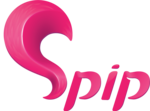SPIP
| SPIP
|
|
|---|---|

|
|
| Basic data
|
|
| Publishing year | July 2001 |
| Current version |
3.2.7 ( December 12, 2019 ) |
| operating system | all LAMP systems |
| programming language | PHP |
| category | Content management system |
| License | GPL ( Free Software ) |
| German speaking | Yes |
| www.spip.net | |
SPIP is a free web content management system . SPIP (Système de Publication pour l'Internet Partagé) is an application program used to create websites . Originally intended for the design of collective internet newspapers, it has now grown into a versatile CMS . SPIP is available free of charge as free software under the terms of the GPL .
Its very simple installation, handling and maintenance enables a wide range of users to create collective web projects.
SPIP was created in the French-speaking area and is most widespread here. His mascot is a squirrel (in some dialects of Belgium they say Spip for squirrel) after its namesake Pips (French: Spip), the pet of the comic hero Spirou .
presentation
SPIP is the most widely used free CMS in French-speaking countries, but is also used in numerous other language areas. It is used for over 25,000 websites today and is accessible to everyone thanks to its free license (GNU GPL).
Its main characteristics come from the field of online publication. It is used in a wide variety of areas: institutional bodies (the French post office, some French ministries), online newspapers (Le Monde diplomatique), non-profit associations, university and private websites.
SPIP 2 takes the step from a classic CMS to a development platform for applications with distributed databases. Compatibility with older versions is retained. The new SPIP is designed for two user groups with little or extensive technical knowledge, so that it is still easy to learn, but offers numerous new functions.
technology
The program is written in PHP and works with the MySQL database technology .
history
SPIP was originally written for the online magazine uzine.net. Its developers decided to put it under the GPL free license. From 2001, SPIP will be used for other websites.
SPIP provides a cache mechanism, authentication, automated installation and an administration interface with article entry, etc. With SPIP, thanks to the existing document templates - called skeletons - dynamic websites can be created without the need for PHP knowledge.
From version 1.6 (beginning of 2003) the private interface of SPIP is offered in several languages. A translator room will be set up to allow further translations.
From 1.7 (January 2004), multilingual websites can be managed. SPIP is expanded to include a search module and website indexing. In addition, the content of other websites can now be integrated via syndication.
With version 1.8 (April 2005) a completely overhauled private interface is offered. For the developers of SPIP there is now a compiler that enriches the joint work considerably and opens up new perspectives. SPIP's skeletons can be made more complex without the use of PHP.
Version 1.9 (July 2006) introduced the use of plugins. The organization of the files is rearranged and the file extension changes from php3 to php.
The system of models is introduced with 1.9.1, based on the templates from Wikimedia.
Version 1.9.2 changes the arrangement of the system folders to allow better sharing of the code sources.
Version 2.1 brings a modularized content management system and a further development of the plug-in and layout system. Several layout frameworks now enable an application and its layout to be put together with a click. The most important layout framework is Z for SPIP (ZPIP).
literature
- Anne-Laure Quatravaux, Dominique Quatravaux, et Sandrine Burriel: Spip 2: Premiers pas pour créer son site web. Eyrolles, 2009, ISBN 978-2-212-12502-3 (French)
- Matthieu Marcillaud: Programming with SPIP, English, Book on Demand http://www.lulu.com/product/couverture-souple/programming-with-spip/12192385 , French: http://www.lulu.com/product/ paperback / programmer-avec-spip / 11019986